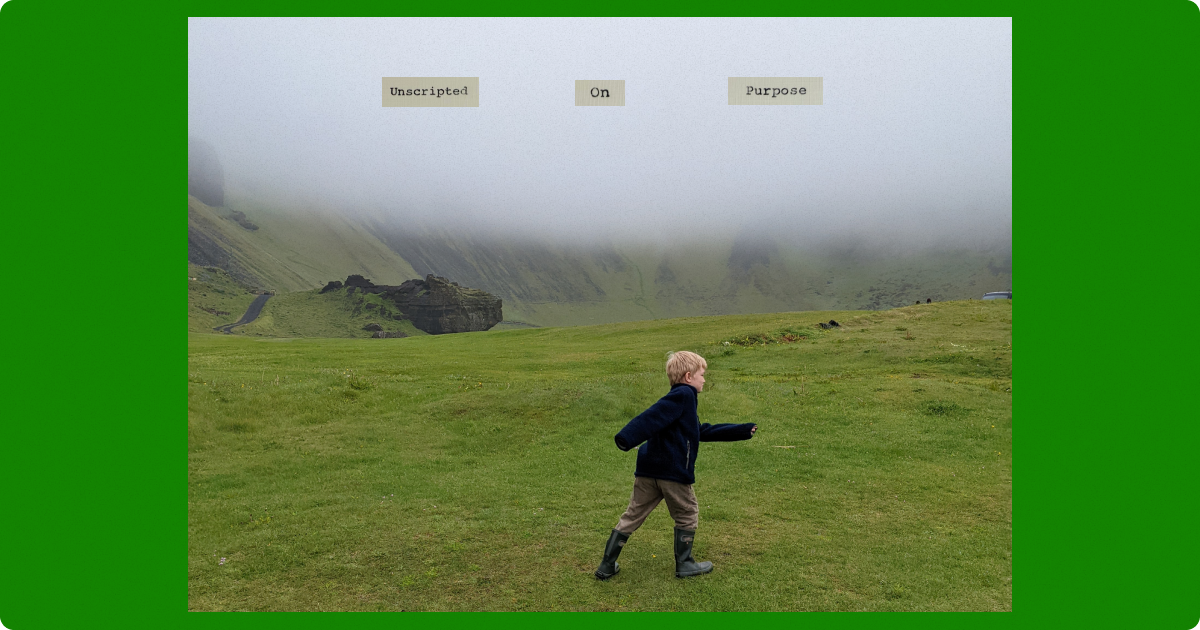Unscripted on Purpose
What improv teaches us about navigating with awareness, creativity, and a bit less grip
Most of us don’t consider ourselves improvisers, but we’re doing it all the time. When plans unravel, timing shifts, or reality doesn’t match the script, the instinct may be to grip the wheel tighter—-anything to maintain a sense of order. But life often demands we play the cards we’re dealt, not the ones we hoped for.
Early in my career, someone encouraged me to lean on the phrase “Yes, and...” without much explanation. I took it to mean agree first, figure it out later. Not quite. The real power of the prompt isn’t about agreement, it’s about acceptance—-embracing conditions, however messy, unfamiliar, or wildly inconvenient they may be, and building from there. Meeting the moment, and not the ideal, has quietly shaped the way I work, and eventually helped spark Wondering Forward.
Tina Fey, a seasoned improviser, puts it like this:
“The key to improvisation is not to anticipate what’s going to happen, but to respond with whatever is in front of you. There are no mistakes, only opportunities.”
This mindset is taught far beyond the stage. Second City, Chicago’s legendary improv theater, is the birthplace of countless SNL legends and also trains teams from Google to the FBI. Because when things go sideways (and they will), your ability to adapt realtime is just as important as your ability to plan and control.
Some of the biggest breakthroughs have come from a twist of fate meeting a flexible mind: penicillin, the internet, and maybe one of your own.
In an era defined by rapid change and mounting uncertainty, improvisation isn’t just a performance method—-it’s a critical skill. One that helps you stay steady when the ground shifts and the work still needs doing.
So, the next time the unexpected arrives:
– Pay attention. Let go of what you wanted or expected to happen, and tune into the nuance of what actually is.
- Say “Yes, and...” by doing. After accepting what’s real, take the next best step. Maybe it's building on someone else’s idea, shifting gears mid-meeting, or salvaging a morning that went sideways. Action creates momentum.


